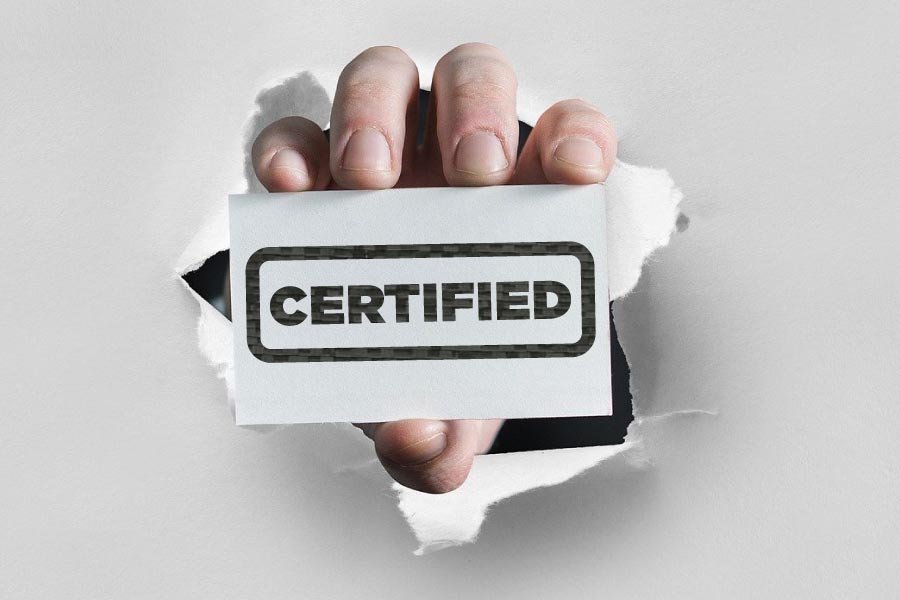
When you need roofing work, whether it’s for your home or a commercial building you manage, it’s easy to give in to the urge to hire the cheapest contractor you come across. In most cases, cheap contractors such as this have no certification to speak of. It’s important to resist the temptation of cheap roofing services even if you are tight on finances, as you’ll find that skimping up front is sure to cost you more in the long run. Furthermore, there is a chance you are endangering the people who live or work under that roof.
It is imperative you always hire certified roofing contractors, even for jobs you think are minor. There are several reasons this is important, and below we’ll go over the advantages attached to asking for certification and licensing when dealing with any contractor.
Legal Requirement
For starters, there is little work any contractor can legally do without going through a specific office, whether at city or state level. Roofers are no exception to this rule. Thus, it would be illegal to have your roof worked on by an unlicensed contractor. Even though licensing procedures may vary within locations, core requirements are often similar.
Knowledge & Expertise
For a repair contractor to be licensed, they need to undergo formal training. Alternatively, they should have a specified amount of work experience in the field. Furthermore, there are tests they are required to pass on areas such as construction laws, health codes, and safety requirements. All of this means that a certified contractor will have appropriate knowledge, and they will provide professional services with no shortcuts or guesswork.
Contract Working
There are many advantages of written contracts, especially to you, the client. A licensed professional will provide a written agreement that details the scope of the project, materials required, and the expected time-frame. Thus the contractor is bound by their word. The “mechanic’s alien” is a clause in the contract that protects the customer from being liable for bills unpaid to suppliers or subcontractors should it be a no-show.
Insurance
All licensed contractors are mandated by their states’ Contractors State License Board (CSLB) to carry insurance. This means you are protected from being responsible for any costs incurred by property damage. In addition, you will not be held liable if a contractor should get physically hurt while on the job. Instead, they will demand compensation from the roofing company.
In most states, a home repair contractor is required to be bonded and insured. If your contractor is bonded, it means they have secured funds to pay for damages.
Inquire and Verify
Before you sign off the papers to hire a contractor, ask for copies of their insurance certificate and any other licensing documents you deem necessary. Ensure that they are valid and up to date. In the case of general liability, coverage amount varies between $1 million to $5 million. Ensure it is updated on the certificate.
Inquire whether your contractor will work solo or they will hire any subcontractors. In case they hire extra parties, ensure that all subcontractors’ insurance is valid and updated as well. It’s also a good idea to get a lien to waver to protect you from being liable for payments to subcontractors should the contractor fail to pay as per their agreement.
Always Ask for a Warranty
If you need a contractor to install a new roof, make sure they provide a warranty. If you are hiring for smaller repairs, discuss available warranty options with your contractor. Sign a written contract with all the costs, including labor and materials purchased. Ensure cleanup is included in the contract. It will ensure you don’t have to incur extra landscaper bills to clean up the yard once the roofing work is complete.
https://mydividedsky.com/licensing-and-certification-importance/?utm_source=rss&utm_medium=rss&utm_campaign=licensing-and-certification-importance
No comments:
Post a Comment